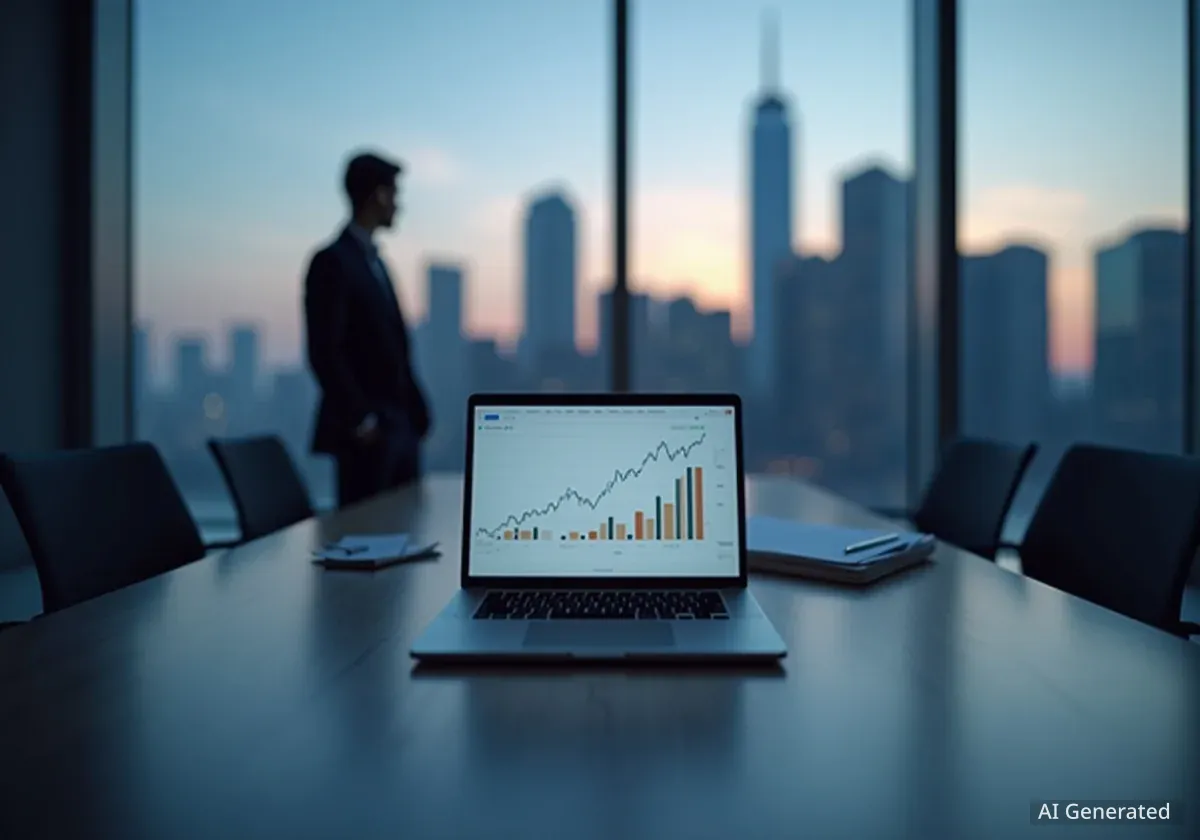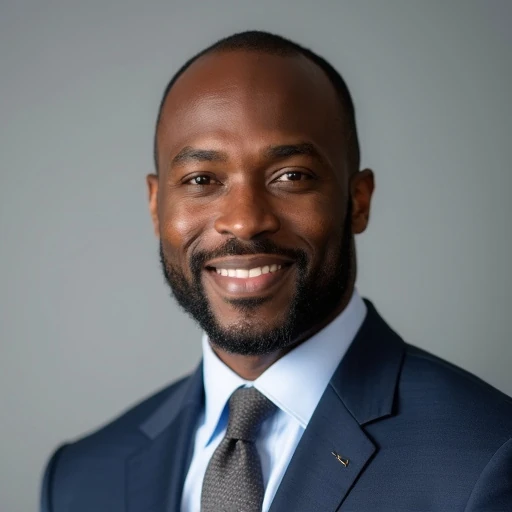JPMorgan Chase CEO Jamie Dimon has issued a warning about lax lending standards following recent auto-related bankruptcies, signaling potential trouble ahead for credit markets. In parallel, Walmart is partnering with OpenAI to revolutionize its e-commerce platform with conversational AI, while a top U.S. official has accused China of attempting to disrupt the global economy through restrictions on rare earth minerals.
Key Takeaways
- JPMorgan CEO Jamie Dimon identified recent bankruptcies in the auto sector as a sign of overly relaxed lending standards since 2010.
- Walmart is integrating OpenAI's ChatGPT to create a conversational "chat and buy" experience for its online shoppers.
- Treasury Secretary Scott Bessent stated China is using rare earth mineral restrictions to negatively impact the global economy amid its own economic struggles.
- JPMorgan reported a $170 million charge-off in Q3 related to the failure of auto dealer Tricolor Holdings, one of its borrowers.
Dimon Signals End of a Credit Bull Market
JPMorgan Chase CEO Jamie Dimon has raised concerns about the health of the credit market, pointing to recent corporate failures as evidence of weakened lending discipline. The bankruptcies of two auto-related firms, First Brands and Tricolor Holdings, served as a catalyst for his remarks.
Dimon suggested that a prolonged period of favorable credit conditions may be coming to an end. This extended cycle has been active for over a decade, creating an environment where risk may have been underestimated.
"We’ve had a credit bull market now for the better part of what, since 2010 or 2012? That’s like 14 years," Dimon stated in a CNBC interview.
He described the recent bankruptcies as potential indicators of broader issues. "These are early signs there might be some excess out there because of it," he added. Dimon warned of more significant problems if the economy experiences a downturn, stating, "If we ever have a downturn, you’re going to see quite a bit more credit issues."
JPMorgan's Direct Exposure
JPMorgan's concerns are not merely theoretical. The bank was a lender to Tricolor Holdings and felt a direct financial impact from its collapse. In its third-quarter earnings report, JPMorgan disclosed $170 million in charge-offs specifically linked to the auto dealer's failure.
Dimon acknowledged the bank's role in the lending arrangement, calling the outcome disappointing. "It is not our finest moment," he said of the Tricolor situation. He assured that the bank is conducting a thorough review of its processes to prevent similar incidents.
Understanding Credit Cycles
A "credit bull market" refers to a long period where it is relatively easy for businesses and consumers to borrow money due to low interest rates and relaxed lending standards. While this can fuel economic growth, it can also lead to excessive debt and risk-taking, creating vulnerabilities during an economic slowdown.
"When something like that happens, you could assume that we scour every issue... You can never completely avoid these things, but the discipline is to look at it in cold light and go through every single little thing," Dimon explained, outlining the bank's internal review process.
Walmart Partners with OpenAI for AI-Powered Shopping
In a significant move for the retail industry, Walmart announced that it will integrate OpenAI's ChatGPT into its e-commerce platform. This partnership will allow customers to "chat and buy" products using a conversational interface, moving beyond traditional search bars and product listings.
Walmart CEO Doug McMillon framed the initiative as a fundamental shift in the online shopping experience. "For many years now, eCommerce shopping experiences have consisted of a search bar and a long list of item responses. That is about to change," McMillon said in a statement.
The goal is to create a more intuitive and personalized shopping journey. McMillon described the future as "a native AI experience coming that is multi-media, personalized and contextual."
The Rise of Conversational Commerce
This initiative builds on Walmart's existing work in artificial intelligence, including its own AI shopping assistant named Sparky. By partnering with a leader like OpenAI, Walmart aims to accelerate its push into the next generation of e-commerce.
OpenAI's Powerful Backers
OpenAI, the developer of ChatGPT, is supported by several major technology companies. Microsoft (MSFT) and Nvidia (NVDA) are key investors. Additionally, Advanced Micro Devices (AMD) has a deal to acquire up to 10% of the company. The AI firm was co-founded by Elon Musk.
"We are running towards that more enjoyable and convenient future with Sparky and through partnerships including this important step with OpenAI," McMillon added. The integration could set a new standard for how consumers interact with online retailers, potentially prompting competitors to develop similar AI-driven features.
US Official Accuses China of Economic Disruption
Treasury Secretary Scott Bessent has accused China of attempting to destabilize the global economy by restricting its exports of rare earth minerals. In an interview with the Financial Times, Bessent suggested the move is a response to China's own significant economic challenges.
Bessent argued that China is trying "to pull everyone else down with them" as its own economy struggles. He warned that this strategy is likely to backfire on Beijing.
"If they want to slow down the global economy, they will be hurt the most," Bessent stated, highlighting China's dependence on global trade.
The comments underscore rising tensions over control of critical resources. Rare earth minerals are essential for manufacturing a wide range of modern technologies, including smartphones, electric vehicles, and advanced defense systems.
A Strategy of 'Exporting' a Recession
According to a CNBC report on the interview, Bessent believes China's actions are a flawed attempt to navigate its domestic downturn. "They are in the middle of a recession/depression, and they are trying to export their way out of it," he said.
However, he pointed out the diplomatic and economic risks of such a strategy. "The problem is they’re exacerbating their standing in the world," Bessent concluded. This approach could further isolate China and encourage other nations to accelerate efforts to diversify their supply chains for critical minerals, reducing their long-term reliance on Chinese exports.





